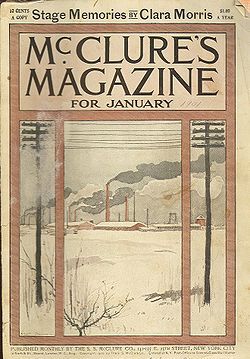Site-archief
Poëzie op de begraafplaats
Dichter bij de dood op 1 november!
.
In tegenstelling tot alle voorgaande jaren zal Dichter bij de Dood dit jaar niet plaatsvinden op Allerzielen (2 november) maar een dag eerder op 1 november (Allerheiligen). Helaas ging een bijeenkomst op de begraafplaats Oud Eik en Duinen dit jaar voor. Maar niet getreurd, op vrijdagavond vanaf 18.45 zal een keur aan dichters en troubadours van zich laten horen. Tussen 18.45 en 21.00 is het mogelijk langs een route met fakkels over de begraafplaats te lopen waar een aantal dichters staan die hun gedicht over donker en licht ten gehore zal brengen.
Ik zal daar ook aanwezig zijn en mijn gedicht voordragen. Andere dichters zijn bijvoorbeeld Karen de Boer en Simon Mulder. Ook dit jaar wordt er een bundeltje gemaakt van de gedichten van de dichters die meedoen. Dit bundeltjes wordt gratis uitgereikt aan bezoekers van Dichter bij de Dood 2024.
Zoals elk jaar wordt de dichters gevraagd een graf te ‘adopteren’ van een bekende schrijver, dichter of kunstenaar. Dit jaar koos ik voor Wilhelm Josephus van Zeggelen (1811-1879) mede eigenaar van de Haagse drukkerij gebr. Giunta d’Albani, en die daarnaast ook de dichtkunst beoefende. Van Zeggelen was een van de bekendste leden van het (Haagse) letterkundig genootschap ‘Oefening kweekt kennis’. Hij was vooral populair door zijn humoristische verhalende gedichten. Voorbeelden zijn ‘Pieter Spa’s reize naar Londen’ ter gelegenheid van het kroningsfeest van koningin Victoria (1838) en ‘Lach en luim’ (1846) en ‘Vrolijke schetsen’ (1851).
Begraafplaats Oud Eik en Duinen is gelegen aan de Laan van Eik en Duinen 40 in Den Haag. Let op: vanaf 18.00 uur is het betaald parkeren bij de begraafplaats.
Uit ‘De dichtwerken’ uit 1886 het gedicht ‘Vrijheid’ van van Zeggelen.
.
Vrijheid
.
Een leus, die alles aangrijpt en bezielt,
Een levensboom, waarvoor het mensdom knielt,
Een ster, die voorlicht naar een heilig Oosten,
Een wekstem om gebreidelden te troosten.
.
Een wapenschild voor leugen en bedrog,
Een krijgsbanier beklad met adderspog,
Een droom, die spreekt door valse visioenen,
Een struik, die wel verbruint, maar niet kan groenen.
.
Een loflied op een serafijnen wijs,
Een leidsvrouw naar een geurig paradijs,
Een toverwoord, dat geestkracht doet ontwellen,
Een morgenstraal, om ’t volle licht te spellen.
.
Een lokaas, dat het zwak gemoed verleidt,
Een woestaardskreet, die angst en wee verspreidt,
Een schaterlach van listige sirenen,
Een zwijmeldrank tot doven of verstenen.
.
O vrijheid, manna, – dat ons laaft en voedt,
Wat klinkt gij schoon, wat is uw voorsmaak zoet!
Helaas, is ooit een woord misbruikt in ’t leven,
Wie heeft als gij de teug van lief en leed gegeven!
.
The White Man’s Burden
Rudyard Kipling
.
Afgelopen week was ik bij de presentatie van mijn dochters profielwerkstuk op het Haganum in Den Haag. Alle leerlingen van 6 gymnasium gaven daar hun presentatie en omdat we er toch waren hebben we gelijk maar nog 4 presentaties meegenomen. Heel leuk en leerzaam. Zeker toen in een presentatie van twee leerlingen een verwijzing werd gedaan naar het gedicht ‘The white man’s burden’ van Ruduyard Kipling (hun presentatie ging over de verovering en kolonisatie van de Maya’s door de Spanjaarden).
Omdat ik het gedicht niet echt kende ben ik op zoek gegaan en ‘The white man’s burden’ van Kipling (1865 – 1936) blijkt een gevoelig liggend gedicht te zijn.
The White Man’s Burden (Nederlands vertaling ‘De last van de blanke’) werd in 1899 gepubliceerd in McClure’s Magazine en droeg de ondertitel ‘The United States and the Philippine Islands’. De Verenigde Staten waren destijds verwikkeld in de Filipijns-Amerikaanse Oorlog. Hoewel het gedicht een gemengde boodschap over het opkomende imperialisme van de VS bevat, lijkt het op het eerste gezicht een oproep tot het koloniseren van “minderbeschaafde” volkeren door de westerse mogendheden. Amerikaanse imperialisten gebruikten het gedicht “white man’s burden” als een rechtvaardiging voor het veroveren van nieuwe gebieden. Het controversiële gedicht was oorspronkelijk bedoeld voor het diamanten regeringsjubileum van koningin Victoria, maar voor dit doel diende later het gedicht ‘Recessional’. (Bron: Wikipedia).
.
The White Man’s Burden
.
Take up the White Man’s burden–
Send forth the best ye breed–
Go bind your sons to exile
To serve your captives’ need;
To wait in heavy harness,
On fluttered folk and wild–
Your new-caught, sullen peoples,
Half-devil and half-child.
Take up the White Man’s burden–
In patience to abide,
To veil the threat of terror
And check the show of pride;
By open speech and simple,
An hundred times made plain
To seek another’s profit,
And work another’s gain.
Take up the White Man’s burden–
The savage wars of peace–
Fill full the mouth of Famine
And bid the sickness cease;
And when your goal is nearest
The end for others sought,
Watch sloth and heathen Folly
Bring all your hopes to nought.
Take up the White Man’s burden–
No tawdry rule of kings,
But toil of serf and sweeper–
The tale of common things.
The ports ye shall not enter,
The roads ye shall not tread,
Go mark them with your living,
And mark them with your dead.
Take up the White Man’s burden–
And reap his old reward:
The blame of those ye better,
The hate of those ye guard–
The cry of hosts ye humour
(Ah, slowly!) toward the light:–
“Why brought he us from bondage,
Our loved Egyptian night?”
Take up the White Man’s burden–
Ye dare not stoop to less–
Nor call too loud on Freedom
To cloke your weariness;
By all ye cry or whisper,
By all ye leave or do,
The silent, sullen peoples
Shall weigh your gods and you.
Take up the White Man’s burden–
Have done with childish days–
The lightly proferred laurel,
The easy, ungrudged praise.
Comes now, to search your manhood
Through all the thankless years
Cold, edged with dear-bought wisdom,
The judgment of your peers!
.






